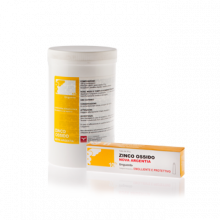SOBREPIN COUGH SED*SCIR 150ML
Therapeutic indications
Dextromethorphan hydrobromide is indicated for the symptomatic treatment of dry cough.
Dosage and method of use
Dosage Adults and adolescents (12 to 18 years old)The generally recommended dose range varies from 10 mg (one teaspoon corresponding to approximately 3 ml) to 20 mg (2 teaspoons corresponding to approximately 6 ml in total) every 6 hours. The maximum daily dose that can be reached in 24 hours is 80 mg.Children up to 12 yearsDextromethorphan hydrobromide should not be used.
Contraindications
- Hypersensitivity to the active ingredient or to any of the excipients; - bronchial asthma, COPD (chronic obstructive pulmonary disease), pneumonia, breathing difficulties, respiratory depression; - cardiovascular diseases, hypertension; - hyperthyroidism; - diabetes; - glaucoma; - prostatic hypertrophy; - stenosis of the gastrointestinal and urogenital system; - epilepsy; - serious liver disease; - children under 12 years of age; - do not use at the same time or in the two weeks following MAO inhibitor antidepressant drugs; - first trimester of pregnancy, breastfeeding (see section 4.6).
Side effects
Below are the side effects of dextromethorphan hydrobromide organized according to the MedDRA system organic classification. There is insufficient data to establish the frequency of all individual effects listed.Nervous system disordersDrowsiness, fatigue, nystagmus, dystonia, dizziness, light-headedness and foul language. Serotonin syndrome, characterized by: nausea, hypotension, neuromuscular hyperactivity (tremor, clonic spasm, myoclonus, increased reflex response and rigidity of pyramidal origin), hyperactivity of the autonomic nervous system (diaphoresis, fever, tachycardia, mydriasis) and altered mental status ( agitation, excitement, confusion), leading to cardiac arrest and death.Psychiatric disordersPsychosis, hallucinations. Mental dependence; Dextromethorphan has a low risk of abuse and dependence. However, cases of mental (not physical) dependence and cases of abuse have been reported due to the euphoric effect caused by the substance.Immune system disordersDiabetes mellitus.Gastrointestinal disordersNausea, vomiting, gastrointestinal disorders and reduced appetite.Pathologies of the skin and subcutaneous tissueAllergic skin reactions and rashes.Reporting of suspected adverse reactionsReporting suspected adverse reactions that occur after authorization of the medicinal product is important, as it allows continuous monitoring of the benefit/risk balance of the medicinal product. Healthcare professionals are asked to report any suspected adverse reactions via the national reporting system at: http://www.agenziafarmaco.gov.it/it/responsabili
Special warnings
Treatment with dextromethorphan hydrobromide should not be continued beyond 5-7 days. If there is no therapeutic response within a few days, the doctor should reassess the situation. Dextromethorphan hydrobromide may be habit-forming. Following prolonged use, patients may develop tolerance to the medicinal product, as well as mental and physical dependence (see section 4.8). Patients with a tendency towards abuse or dependence should take dextromethorphan hydrobromide syrup for short periods and under close medical supervision. Cases of abuse of dextromethorphan have been reported. Particular caution is recommended with adolescents and young adults, as well as with patients with a history of drug or psychoactive substance abuse. A chronic cough may be an early symptom of asthma and therefore dextromethorphan hydrobromide is not indicated for the suppression of chronic or persistent cough (e.g. due to smoking, emphysema, asthma, etc.). Dextromethorphan hydrobromide must be administered with particular caution and only on medical advice if the cough is accompanied by other symptoms such as: fever, rash, headache, nausea and vomiting. The medicine should not be taken in case of cough accompanied by abundant secretion. In case of irritating cough with significant mucus production, treatment with dextromethorphan hydrobromide should be administered with particular caution and only on medical advice after a careful risk-benefit assessment. During therapy with dextromethorphan hydrobromide, the use of alcohol is inadvisable (see section 4.5). Administer dextromethorphan hydrobromide with caution and only after a careful risk-benefit assessment in patients with cardiovascular diseases, hypertension, hyperthyroidism, diabetes, glaucoma, prostatic hypertrophy, stenosis of the gastrointestinal and urogenital system, epilepsy, impaired liver function, in subjects with or who are taking antidepressant medications, such as MAO inhibitor medications. Dextromethorphan is metabolised by hepatic cytochrome P450 2D6. The activity of this enzyme is genetically determined. Approximately 10% of the population slowly metabolizes CYP2D6. Exaggerated and/or prolonged effects of dextromethorphan may occur in poor metabolizers and patients with concomitant use of CYP2D6 inhibitors. Caution is therefore necessary in patients who are poor metabolisers of CYP2D6 or who use CYP2D6 inhibitors (see also section 4.5).Important information about some excipients: This medicine contains up to 300 mg of ethanol (alcohol) per dose. This medicine contains parahydroxybenzoates (methyl parahydroxybenzoate and propyl parahydroxybenzoate) which may cause allergic reactions (possibly delayed). This medicine contains sucrose. Patients suffering from rare hereditary problems of fructose intolerance, glucose-galactose malabsorption, or sucrase isomaltase insufficiency should not take this medicine. This medicine contains parahydroxybenzoates (methyl parahydroxybenzoate and propyl parahydroxybenzoate) which may cause allergic reactions (possibly delayed).
Pregnancy and breastfeeding
The results of epidemiological studies on a limited sample of the population did not indicate an increase in the frequency of malformations in children who were exposed to dextromethorphan hydrobromide during the prenatal period. However, these studies do not adequately document the timing and duration of treatment with dextromethorphan hydrobromide. Reproductive toxicity studies in animals do not indicate a potential risk for dextromethorphan hydrobromide for humans (see section 5.3). Dextromethorphan hydrobromide should not be used during the first three months of pregnancy; furthermore, since the administration of high doses of dextromethorphan hydrobromide, even for short periods, can cause respiratory depression in newborns, in the following months the drug must be administered only in case of actual need and after a careful evaluation of the benefits and risks. Since the excretion of the drug in breast milk is not known and a respiratory depressive effect on the newborn cannot be excluded, dextromethorphan hydrobromide is contraindicated during breastfeeding.
Expiration and conservation
Store in the original package in order to protect the medicine from light.
Interactions with other drugs
MAO inhibitor drugsConcomitant administration of dextromethorphan hydrobromide with MAO inhibitor drugs is contraindicated. Furthermore, dextromethorphan hydrobromide syrup should not be taken within 2 weeks following therapy with MAO inhibitor drugs. The association of these drugs can, in fact, induce the development of a serotonin syndrome, characterized by the following symptoms: nausea, hypotension, neuromuscular hyperactivity (tremor, clonic spasm, myoclonus, increased reflex response and rigidity of pyramidal origin), hyperactivity of the autonomic nervous system (diaphoresis, fever, tachycardia, mydriasis) and altered mental state (agitation, excitement, confusion), up to cardiac arrest and death.Linezolid and sibutramineCases of serotonin syndrome have also been reported following the concomitant administration of dextromethorphan hydrobromide with linezolid or sibutramine.Central nervous system inhibitor drugsConcomitant administration of dextromethorphan hydrobromide with drugs with an inhibitory effect on the central nervous system such as hypnotics, sedatives or anxiolytics, or with alcohol, may lead to additive effects on the central nervous system.CYP2D6 inhibitorsDextromethorphan is metabolised by CYP2D6 and has extensive first pass metabolism. Concomitant use of strong inhibitors of the CYP2D6 enzyme can increase dextromethorphan concentrations in the body to levels many times higher than the normal value. This increases the patient's risk for toxic effects of dextromethorphan (agitation, confusion, tremor, insomnia, diarrhea, and respiratory depression) and for the development of serotonin syndrome. Potent inhibitors of CYP2D6 are fluoxetine, paroxetine, quinidine and terbinafine. When used concurrently with quinidine, plasma concentrations of dextromethorphan are increased up to 20-fold, resulting in increased adverse CNS effects of the agent. Amiodarone, flecainide and propafenone, sertraline, bupropion, methadone, cinacalcet, haloperidol, perfenzain and thioridazine also have similar effects on the metabolism of dextromethorphan. If concomitant use of CYP2D6 inhibitors and dextromethorphan is necessary, the patient should be monitored and the dose of dextromethorphan may need to be reduced.Secretolytic drugsIf dextromethorphan hydrobromide is used in combination with secretolytic drugs, the reduction of the cough reflex may lead to severe mucus accumulation.Grapefruit juiceGrapefruit juice may increase the absorption, bioavailability and elimination of dextromethorphan hydrobromide, resulting in an increase in its toxicity and a decrease in its effect.
Overdose
SymptomsNausea, vomiting, visual disturbances and central nervous system disorders such as ataxia, dizziness, excitation, increased muscle tone, mental confusion, hypotension and tachycardia. In extreme cases, urinary retention and respiratory depression may occur.TherapyIf necessary, resort to intensive medical care (in particular intubation, ventilation). Precautions may be necessary to safeguard heat loss and replenish fluids. Intravenous administration of naloxone can antagonize the effects of dextromethorphan hydrobromide on the central nervous system, particularly respiratory depression. If necessary, gastric lavage is recommended. Do not administer centrally acting emetics.
Active principles
10 ml of syrup contains Active ingredient: dextromethorphan hydrobromide 30 mg Excipients with known effects: ethyl alcohol, methyl p-hydroxybenzoate, propyl p-hydroxybenzoate, sucrose. For the full list of excipients, see section 6.1.
Excipients
Ethyl alcohol, titrated glycerin, extrafine sucrose, strawberry flavouring, methyl p-hydroxybenzoate, propyl phydroxybenzoate, purified water.

 Convenient and safe payments
Convenient and safe payments
 Shipping in 24h all over the world
Shipping in 24h all over the world
 Fast returns
Fast returns
 Pharmaceutical experience
Pharmaceutical experience









